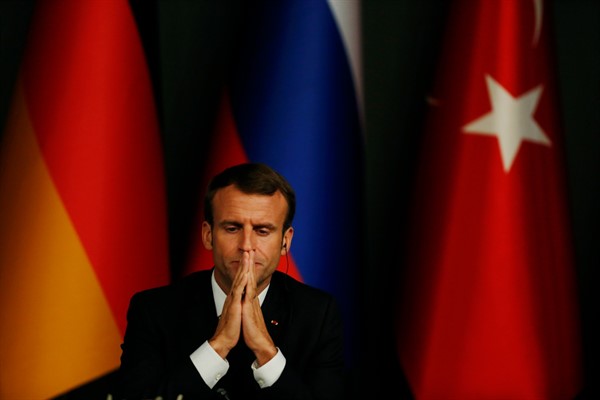French President Emmanuel Macron has taken an activist approach recently to a range of thorny and persistent challenges in and around Europe. As part of that agenda, he has been at the forefront of efforts to confront Russia and Turkey over their neo-imperialist policies. In both cases, Macron has taken a hands-on role, putting himself in the spotlight with high-profile initiatives and tough rhetoric. But that is the only common feature of his highly personalized diplomacy. France has different goals with Russia and Turkey. It has therefore played its hand differently in the two cases, with differing results.
France’s relations with both countries are shaped by hundreds of years of history that include periods of both alliance and war. To some extent, this ambivalence continues to be felt today. France, Russia and Turkey agree on a range of issues—for instance, on the strategic threat posed by terrorism.* But for various reasons, Paris has also been arguing that France and the European Union must create a rapport de force, or balance of power, to push back against both Moscow and Ankara.
When he came to power in 2017, Macron inherited France’s Russia policy from his predecessor, Francois Hollande. This consisted of French participation in the reinforcement of NATO’s defense posture in the Baltic states and Eastern Europe, as well as the so-called Normandy negotiating format, through which Germany and France have tried to mediate a resolution between Ukraine and Russia over Kyiv’s standoff with Russian-back separatists in the eastern Donbass region.

